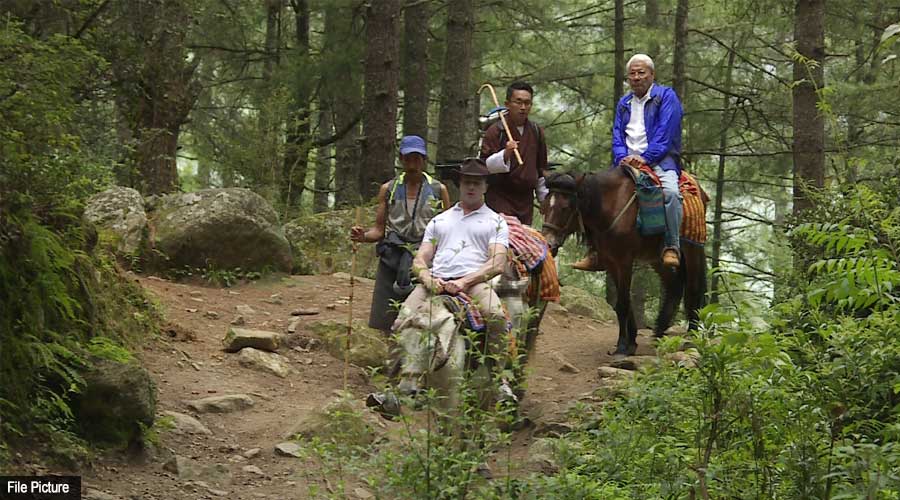
A few months from now, the tourism industry is expected to come alive again amid the reservations surrounding the new tourism policy. But the reservations are not holding many back in preparing to welcome tourists into the country. Tour guides are one of the stakeholders coming to terms with the new policy.
Bhutan is all set to return to its former policy of high-end tourist destination. The parliament endorsed the new policy last month in view of sustaining the industry for generations to come. However, the increase in the Sustainable Development Fees to USD200 per person per night has attracted debates among the stakeholders with some fearing that this will be an early end to the tourism industry.
Stakeholders like tour guides fear losing their source of income due to this policy. They say the policy will deter many tourists from visiting the country.
“Personally, it has affected me a lot. Many guests were waiting for the border gates to reopen. And now with this change, everyone is shocked. Everyone is telling us that it is too expensive and that they cannot afford to come,” said Pyalzang, a tour guide.
“With the hike in the SDF, the number of tourists will decrease drastically. However, I personally focus on local tourism. This local tourism can also really benefit and create opportunities just like international tourists so I am planning to promote local tourism,” said Phub Tshering, also a guide.
But according to the TCB, the new policy will present a host of opportunities for tour guides. With the country promoting high-end tourism, guides will be encouraged to get certified by the TCB aside from their regular tour guide license. This, the TCB says, will improve the quality of their services as they will be getting specialized in different fields.
According to the Chief Tourism Officer at the TCB, Damcho Rinzin, the proposed separate license will be more on specialization.
“For example, one can become a certified guide on a snowman trek. Not everyone can become a snowman trek. Some may not be interested. Some can get certified as butterfly guides. Some can be photography guides because some love taking photographs. So, we will have special certification like that in addition to the basic requirements.”
The guides will also have to develop their portfolio online so as to connect themselves with tourists visiting the country since the new policy will allow tourists to choose their own guides. The TCB says it will support the guides in providing the platform.
“It can be through the people they know in the industry or most importantly the guides will have to come with profiles of their specialization with themselves. For example, some would be specialized in river rafting, some in bird watching, culture, some as destination specialists and so on,” he added.
He also said the rate of the guides should be based on self-regulating standards for the services they provide. However, the TCB is considering fixing a minimum rate.
Embracing the change, some guides are also preparing for the reopening of the industry.
“At first, it was a blow to all the people working in the industry. And then, later on, I realized that it is a good initiative. It is not for one particular person but for the benefit of the country. As said by the Prime Minister, it is to improve the standard of the guides, hoteliers and all those in the tourism industry. So, I have big hopes,” said Dorji Bidha, a tour guide.
Meanwhile, the Guide Association of Bhutan is also on board. The Association is looking forward to the reopening and preparing the guides with the necessary skills. According to its founder/chairperson, Garab Dorji, the foremost thing the association is looking at is upskilling the guides.
“We also want to give them a refresher course because our members have not guided for more than three years due to the covid. It is going to become competitive among the guides. This means that guides who are good will get good groups and also be paid more. So those guides who have not upskilled themselves will have to upskill.”
According to the TCB, it is mandatory for tourists to engage guides for events like trekking, hiking that requires a night halt, camping trips, and visits to monuments and religious sites that are levied entry fees.
Kinley Dem
Edited by Sonam





